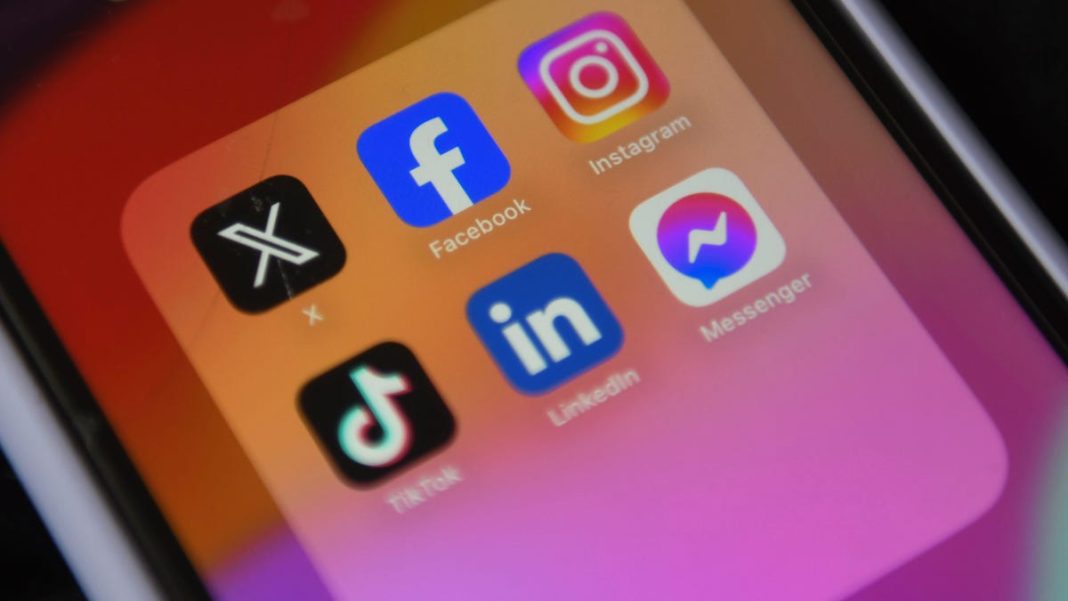Trump Signs Order to Pause TikTok Ban – But Is It Within His Authority?
In a significant move shortly after his swearing-in, President Donald Trump announced an executive order on Monday that would pause the enforcement of a TikTok ban in the United States for a period of 75 days.
This order follows TikTok’s sudden shutdown in the U.S. over the weekend; however, the platform stated it was working to resume services thanks to assurances from Trump. By Sunday, the app’s services were quickly restored, but it remained unavailable for download on Apple and Google’s app stores.
“I’m planning to consult with my advisors, including leaders from relevant departments and agencies, regarding the national security issues presented by TikTok. I want to pursue a solution that ensures national security while preserving a platform used by 170 million Americans,” Trump stated in the order.
He added, “My Administration must also examine sensitive intelligence related to these concerns and assess the adequacy of TikTok’s current mitigation strategies.”
On Truth Social, Trump mentioned that he intends to issue the order on his first day back in office “to facilitate a deal that secures our national security.”
Trump also noted that the order would ensure that any company assisting in preventing TikTok’s shutdown would not face legal liabilities prior to his order.
The law Trump aims to pause mandates that TikTok’s parent company, ByteDance, must divest its U.S. TikTok assets by Sunday to keep the app operational in America. This legislation passed with strong bipartisan support due to concerns that the ownership structure—given ByteDance’s Chinese origins—could allow the Chinese government access to Americans’ personal data and influence the information available to them.
This latest initiative marks a change in Trump’s stance. During his first term, he had issued an order to ban TikTok due to national security apprehensions, but that move was halted by a court ruling.
What Does the Executive Order Indicate?
The executive order directs the attorney general to refrain from enforcing the ban for 75 days, allowing the new administration the “opportunity to decide the appropriate action regarding TikTok.”
Trump claims that any enforcement attempts by U.S. states or private parties would infringe on presidential powers.
“The Attorney General is to utilize all available authority to safeguard and uphold the Executive’s exclusive power to enforce the Act,” Trump stressed.
Does Trump Have Authority to Suspend the TikTok Ban?
It remains uncertain if Trump’s executive order can genuinely pause the implementation of the law. This legislation imposes a fine of $5,000 on companies for each user who accesses TikTok through their platforms, including major companies like Apple and Google, as well as organizations such as Oracle that offer internet hosting services.
The law does permit a president to prolong the deadline for a TikTok sale by 90 days if the president confirms progress towards an acceptable sale. However, TikTok has shown no signs of moving in that direction.
“I would prefer the U.S. to hold a 50% ownership stake in a joint venture,” Trump stated in his Truth Social post. “This way, we preserve TikTok, ensure good management, and allow it to continue operations.”
Republican Senators Tom Cotton and Pete Ricketts issued a statement on Sunday that challenged Trump’s authority to pause the law, noting that it had been enacted by Congress and signed by President Joe Biden in April.
“Now that the law is effective, there’s no legal ground for any ‘extension’ of its enforcement date,” said Cotton and Ricketts. “For TikTok to resume service in the future, ByteDance must consent to a sale that fulfills the law’s requirements by completely severing its connection to Communist China.”
Cotton also pointed out on X that any company breaching the law to facilitate TikTok’s U.S. operations “could incur enormous liabilities, potentially amounting to hundreds of billions of dollars, under this law and also face risks related to securities laws, shareholder lawsuits, and actions from state attorneys general.” “Consider the implications,” he added.
Legal expert Alan Rozenshtein from the University of Minnesota previously mentioned that a company could argue in court it shouldn’t be liable for aiding TikTok’s U.S. operations post-ban if they relied on Trump’s assurance not to enforce the law. However, the success of that argument in court remains uncertain.
The law grants the U.S. attorney general the authority to sue companies for the $5,000 fines for any violations in the past five years.
“The real question for companies like Apple is, ‘Does that provide enough reassurance?’ Unfortunately, I can’t predict the outcome,” Rozenshtein stated.
(This article has been updated to include further details.)

